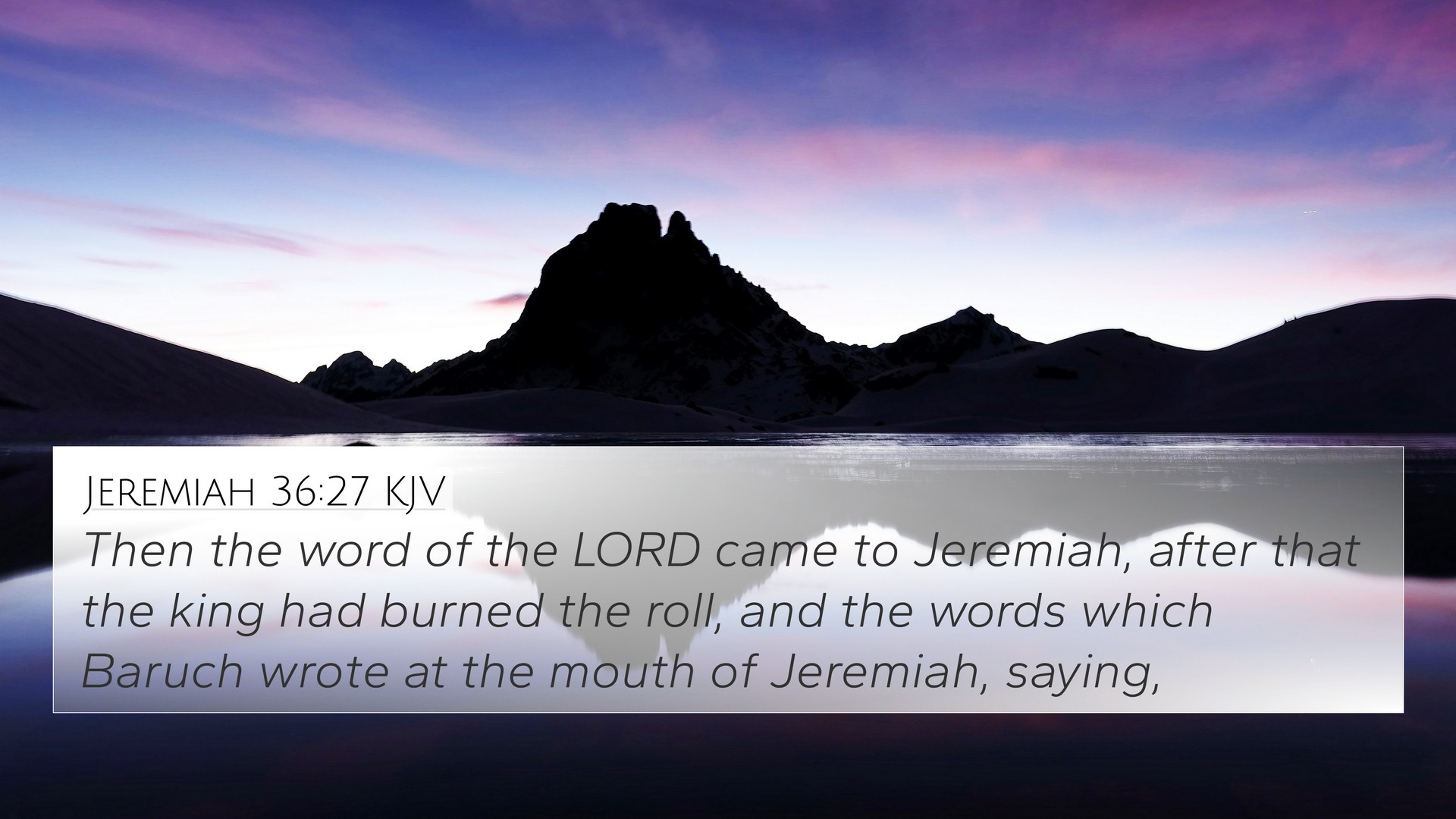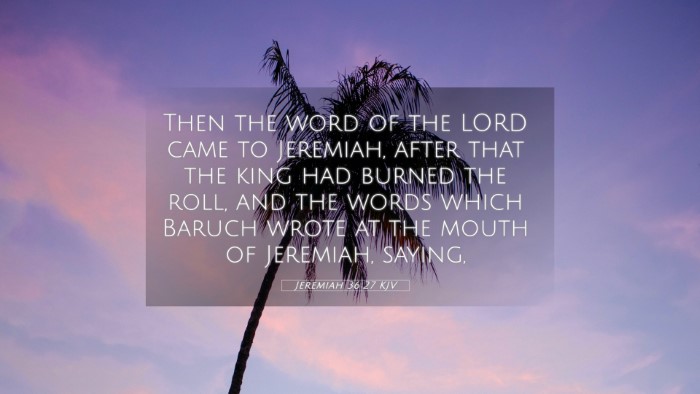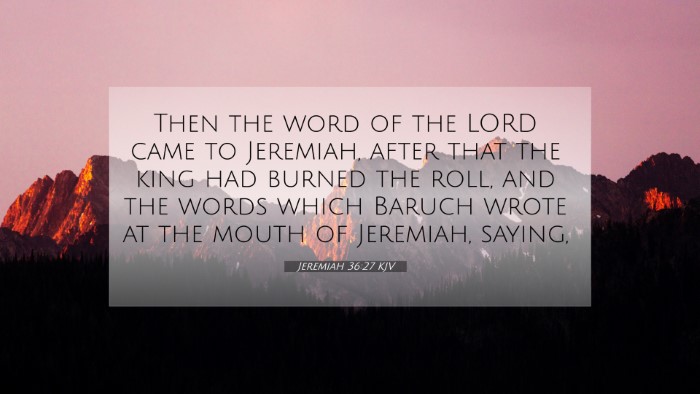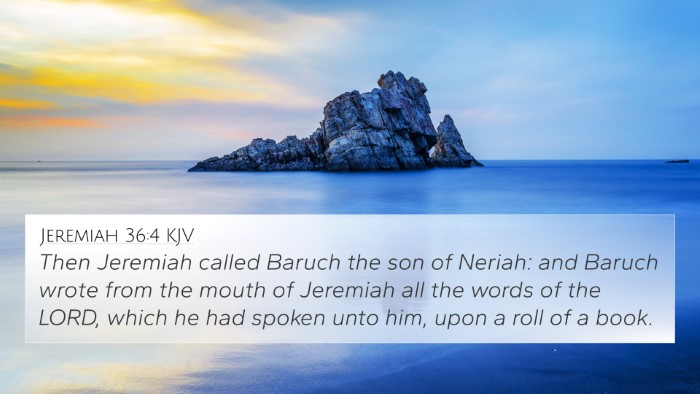Understanding Jeremiah 36:27
Jeremiah 36:27 states:
"Then the word of the Lord came to Jeremiah, after that the king had burned the roll, and the words which Baruch wrote at the mouth of Jeremiah, saying,"
Summary of Meaning
This verse reflects a crucial moment in the prophetic ministry of Jeremiah, where a king's actions attempt to quench the word of God. The burning of the scroll symbolizes a resistance to divine revelation and a rejection of God's message.
Insights from Public Domain Commentaries
Combining insights from Matthew Henry, Albert Barnes, and Adam Clarke reveals a layered understanding of this passage:
- Matthew Henry: Henry emphasizes the serious nature of King Jehoiakim's actions, noting that he attempted to destroy the word of God through physical means. He highlights that this rejection did not halt God's plan, as God commanded Jeremiah to write another scroll.
- Albert Barnes: Barnes notes the lesson on the futility of opposing God. He explains that the king's actions served only to highlight the certainty of God's word, which would ultimately prevail despite human resistance.
- Adam Clarke: Clarke argues that this event serves as a warning against disobedience to God's commandments. He explains that the repetition of the message indicates God's perseverance in delivering His truth, regardless of attempts to discard it.
Cross-References
This verse connects to several key passages in the Scriptures that reflect similar themes of divine communication and human rejection:
- Jeremiah 1:9: God's promise to put His words in Jeremiah's mouth.
- Isaiah 55:11: The assurance that God's word will not return void but accomplish the purpose for which it was sent.
- Acts 7:51: A reminder of the common human tendency to resist the Holy Spirit and reject God’s messages.
- 2 Timothy 3:16: The affirmation that all Scripture is inspired by God and is profitable for teaching, reproof, correction, and training in righteousness.
- Hebrews 4:12: The living and powerful nature of the word of God, capable of discerning the thoughts and intents of the heart.
- Revelation 22:19: A warning about altering God’s word as it affects one’s relationship with God.
- Matthew 5:18: The statement that not one jot or tittle of the law shall pass away until all is fulfilled.
- Psalm 119:89: The eternal nature of God's word, which stands firm in the heavens.
- Jeremiah 23:28-29: The distinction between true and false prophets and the power of God's word like fire and a hammer.
- 2 Peter 1:20-21: The origin of prophecy, not coming from human will but from the Holy Spirit directing men to speak God’s word.
Why Cross-Reference?
Cross-referencing plays a vital role in enriching one's understanding of Scripture.
By exploring related passages, believers can draw connections between various Biblical texts, enhancing the depth of study and revealing thematic connections. Here are some tools and methods:
- Bible Concordance: A tool that helps locate word-specific verses across different Biblical books.
- Cross-Reference Bible Study: This method encourages examining Scripture in light of related passages, promoting a holistic understanding.
- Bible Cross-Reference Guide: Guides that provide thematic and verse-by-verse links between Scriptures.
- Comprehensive Bible Cross-Reference Materials: Collections of resources that help in identifying both subtle and explicit connections between various scriptures.
Conclusion
Jeremiah 36:27 provides a vivid portrayal of the confrontation between divine authority and human rebellion. By employing tools for cross-referencing and understanding connections, believers can glean profound truths not only from this verse but throughout the entirety of Scripture.



